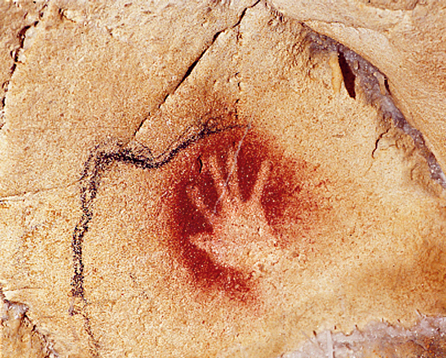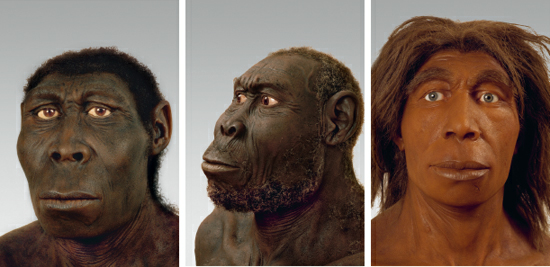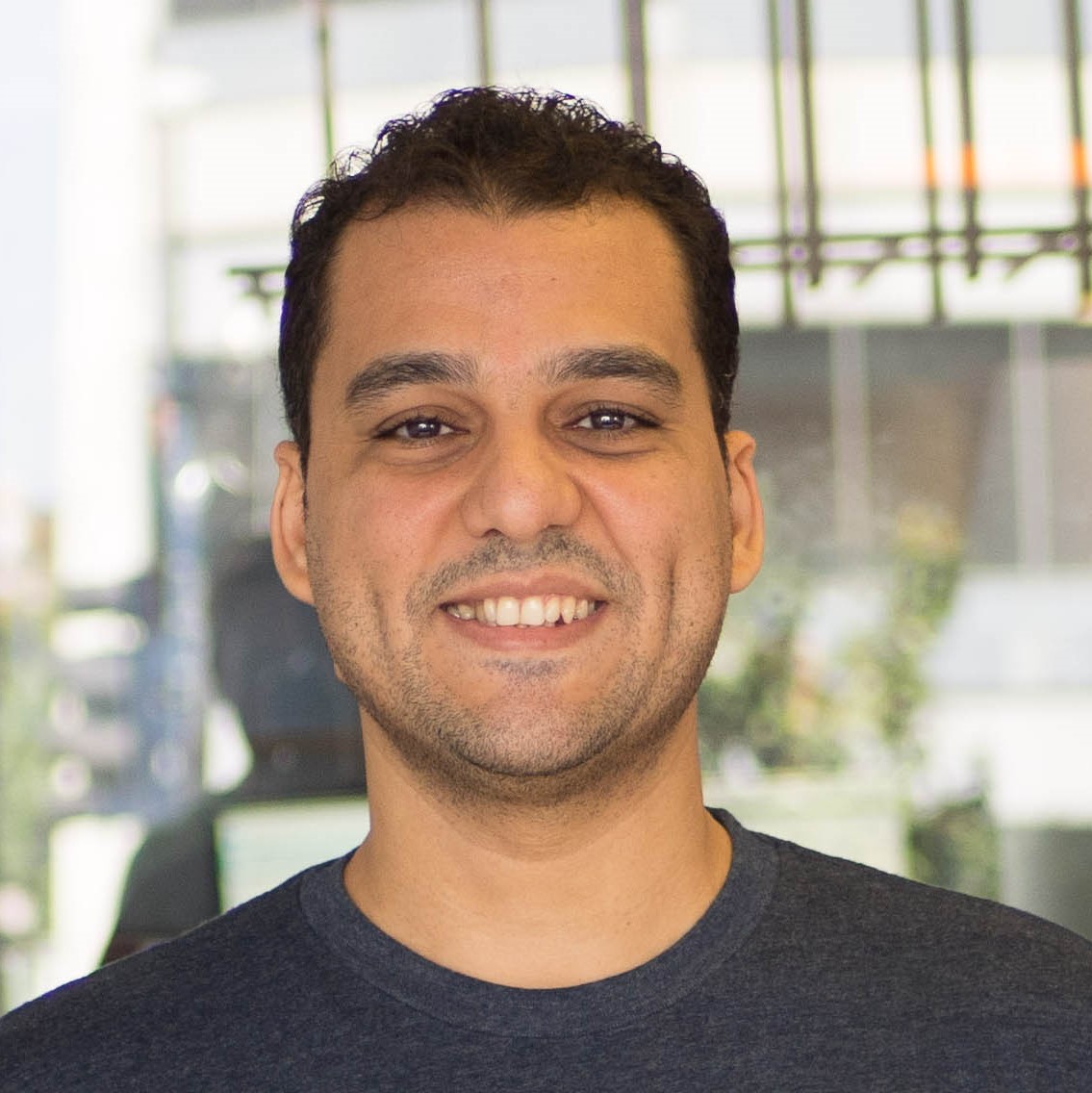Sapiens: A Brief History of Humankind
Sapiens 100,000 years ago, at least six human species inhabited the earth. Today there is just one. Us. Homo sapiens. How did our species succeed in the battle for dominance? Why did our foraging ancestors come together to create cities and kingdoms? How did we come to believe in gods, nations and human rights; to trust money, books and laws; and to be enslaved by bureaucracy, timetables, and consumerism? And what will our world be like in the millennia to come? In Sapiens, Dr. Yuval Noah Harari spans the whole of human history, from the very first humans to walk the earth to the radical – and sometimes devastating – breakthroughs of the Cognitive, Agricultural and Scientific Revolutions. Drawing on insights from biology, anthropology, paleontology, and economics, he explores how the currents of history have shaped our human societies, the animals and plants around us, and even our personalities. Have we become happier as history has unfolded? Can we ever free our behavior from the heritage of our ancestors? And what, if anything, can we do to influence the centuries to come? Bold, wide-ranging and provocative, Sapiens challenges everything we thought we knew about being human: our thoughts, our actions, our power … and our future.
 Sapiens is one of the best books I’ve read this year, a well written narrative of human evolution story mixing a wealth of biological and historical facts about humankind story with easily accessible story narrative format for non-academics. but it doesn’t stop there, Harari proposes many philosophical arguments on some of the most difficult existential questions. The main plot of the book is the story of mankind from dawn to dusk, told with 3 main “milestones” or “revolutions” as the author coined it. (1) The Cognitive Revolution (2) The Agriculture Revolution (3) The Scientific Revolution. a curial and pivotal milestone in human history and evolution. As Harari puts it “Three important revolutions shaped the course of history: the Cognitive Revolution kick-started history about 70,000 years ago. The Agricultural Revolution sped it up about 12,000 years ago. The Scientific Revolution, which got underway only 500 years ago”.
Sapiens is one of the best books I’ve read this year, a well written narrative of human evolution story mixing a wealth of biological and historical facts about humankind story with easily accessible story narrative format for non-academics. but it doesn’t stop there, Harari proposes many philosophical arguments on some of the most difficult existential questions. The main plot of the book is the story of mankind from dawn to dusk, told with 3 main “milestones” or “revolutions” as the author coined it. (1) The Cognitive Revolution (2) The Agriculture Revolution (3) The Scientific Revolution. a curial and pivotal milestone in human history and evolution. As Harari puts it “Three important revolutions shaped the course of history: the Cognitive Revolution kick-started history about 70,000 years ago. The Agricultural Revolution sped it up about 12,000 years ago. The Scientific Revolution, which got underway only 500 years ago”.
The book starts by following the very usual currently told story of human origins and evolution in the currently dominant scientific paradigms. we are members of a large family of the great apes, Our closest living relatives include chimpanzees, gorillas, and orang-utans. we first evolved in East Africa about 2.5 million years ago from an earlier genus of apes called Australopithecus, which means ‘Southern Ape’. eastern regions of Asia were populated by Homo erectus, ‘Upright Man’, who survived there for close to 2 million years, making it the most durable human species ever. one of the first philosophical reflection Harari observe on human history, Sapiens by contrast to most top predators of the planet, is more like a banana republic dictator. Having so recently been one of the underdogs of the savannah, we are full of fears and anxieties over our position, which makes us doubly cruel and dangerous. Language is not a distinctive feature of homo sapiens, we can trace it in linguistic communication patterns in many living animals today, but our language is amazingly supple. We can connect a limited number of sounds and signs to produce an infinite number of sentences, each with a distinct meaning. We can thereby ingest, store and communicate a prodigious amount of information about the surrounding world. Our language evolved as a way of gossiping. According to this theory, Homo sapiens is primarily a social animal. Social cooperation is the key to survival and reproduction. It is not enough for individual men and women to know the whereabouts of lions and bison. It’s much more important for them to know who in their band hates whom, who is sleeping with whom, who is honest, and who is a cheat. but yet a truly unique feature of human language is not its ability to transmit information about things that exist, rather, it’s the ability to transmit information about things that do not exist at all! we can describe and discuss all sort of beings that has no sensible existence, in reality, we have never seen, touched, or smelled.

Fiction has enabled us not merely to imagine things, but to do so collectively. We can weave common myths such as the biblical creation story, the Dreamtime myths of Aboriginal Australians, and the nationalist myths of modern states. Such myths give Sapiens the unprecedented ability to cooperate flexibly in large numbers. Though there are other societies show sophisticated cooperation behaviors in large groups such as ants or bees they don’t cooperate as flexible as humans do. Sapiens can cooperate in extremely flexible ways with countless numbers of strangers. That’s why Sapiens rule the world, whereas ants eat our leftovers and chimps are locked up in zoos and research laboratories. Our ability to tell stories is powerful because it enables a very flexible system of cooperation between total strangers without abiding by the rigid structure as long as they are working together towards a common goal! Yet the difficulty lies not in telling the story, but in convincing everyone else to believe it. Much of history revolves around this question: how does one convince millions of people to believe particular stories about gods, or nations, or limited liability companies?. Unlike lying, an imagined reality is something that everyone believes in, and as long as this communal belief persists, the imagined reality exerts force in the world. The power of fiction and collective imagined realities ignited the first homo sapiens revolution, a cognitive one, where we were able to change our behaviors quickly, adapt to the newer environment, transmitting behaviors to future generations without any need for genetic or environmental change. This summarizes a beautiful relationship between biology and history after the cognitive revolution, where biology sets the basic parameters for the behaviors and capacities of Homo sapiens, and but Sapiens create a more complex structure of evolution using their ability to create fiction. hence understanding the historical evolution of human societies requires careful examination not only for the biological side of the story but also the historical. The book will continue the story taking you on a wonderful journey throughout history to closely observe the next two milestones in human evolution agriculture and scientific revolution.

A fundamental question Harari asks at the end of his investigative journey, “What will be the end of Homo Sapiens?”. He starts by arguing Sapiens are incapable of breaking free of their biologically determined limits. But at the dawn of the twenty-first century, this is no longer true: Homo sapiens is transcending those limits. It is now beginning to break the laws of natural selection, replacing them with the laws of intelligent design. Biological engineering is deliberate human intervention on the biological level (e.g. implanting a gene) aimed at modifying an organism’s shape, capabilities, needs or desires, to realize some preconceived cultural ideas, such as the artistic predilections of Eduardo Kac. but this is becoming a dangerous game to play. our ability to modify genes is outpacing our capacity for making wise use of the skill. even more frightening Professor George Church of Harvard University recently suggested that, with the completion of the Neanderthal Genome Project, we can now implant reconstructed Neanderthal DNA into a Sapiens ovum, thus producing the first Neanderthal child in 30,000 years. Church claimed that he could do the job for a paltry $30 million. Several women have already volunteered to serve as surrogate mothers. some have argued that if Homo sapiens were responsible for the extinction of the Neanderthals, it has a moral duty to resurrect them. And having some Neanderthals around might be useful. Lots of industrialists would be glad to pay one Neanderthal to do the menial work of two Sapiens. Tinkering with our genes won’t necessarily kill us. But we might fiddle with Homo sapiens to such an extent that we would no longer be Homo sapiens. We will become something else perhaps we will merge with the new technology rapidly growing since the twenty-first century. Cyborgs are beings that combine organic and inorganic parts, such as a human with bionic hands. In a sense, nearly all of us are bionic these days, since our natural senses and functions are supplemented by devices such as eyeglasses, pacemakers, orthotics, and even computers and mobile phones (which relieve our brains of some of their data storage and processing burdens). the current active research to devise a direct two-way brain-computer interface that will allow computers to read the electrical signals of a human brain, simultaneously transmitting signals that the brain can read in turn. What if such interfaces are used to directly link a brain to the Internet, or to directly link several brains to each other, thereby creating a sort of Inter-brain-net? What might happen to human memory, human consciousness, and human identity if the brain has direct access to a collective memory bank? In such a situation, one cyborg could, for example, retrieve the memories of another–not hear about them, not read about them in an autobiography, not imagine them, but directly remember them as if they were his own.
On the other hand, The field of genetic programming is today one of the most interesting spots in the computer science world. It tries to emulate the methods of genetic evolution. Many programmers dream of creating a program that could learn and evolve completely independently of its creator. In this case, the programmer would be a primum mobile, a first mover, but his creation would be free to evolve in directions neither its maker nor any other human could ever have envisaged.
Finally, We have advanced from canoes to galleys to steamships to space shuttles–but nobody knows where we’re going. We are more powerful than ever before but have very little idea what to do with all that power. Worse still, humans seem to be more irresponsible than ever.
Timeline of History
- Years Before the Present
- 13.5 billion Matter and energy appear. Beginning of physics. Atoms and molecules appear. Beginning of chemistry.
- 4.5 billion Formation of planet Earth.
- 3.8 billion Emergence of organisms. Beginning of biology.
- 6 million Last common grandmother of humans and chimpanzees.
- 2.5 million Evolution of the genus Homo in Africa. First stone tools.
- 2 million humans spread from Africa to Eurasia. Evolution of different human species.
- 500,000 Neanderthals evolve in Europe and the Middle East.
- 300,000 Daily usage of fire.
- 200,000 Homo sapiens evolves in East Africa.
- 70,000 The Cognitive Revolution. The emergence of fictive language.
- Beginning of history. Sapiens spread out of Africa.
- 45,000 Sapiens settle Australia. Extinction of Australian megafauna.
- 30,000 Extinction of Neanderthals.
- 16,000 Sapiens settle America. Extinction of American megafauna.
- 13,000 Extinction of Homo floresiensis. Homo sapiens the only surviving human species.
- 12,000 The Agricultural Revolution. Domestication of plants and animals. Permanent settlements.
- 5,000 First kingdoms, script and money. Polytheistic religions.
- 4,250 First empire – the Akkadian Empire of Sargon.
- 2,500 Invention of coinage – a universal money.
- The Persian Empire – a universal political order ‘for the benefit of all humans’.
- Buddhism in India – a universal truth ‘to liberate all beings from suffering’.
- 2,000 Han Empire in China. Roman Empire in the Mediterranean. Christianity.
- 1,400 Islam.
- 500 The Scientific Revolution. Humankind admits its ignorance and begins to acquire unprecedented power. Europeans begin to conquer America and the oceans. The entire planet becomes a single historical arena. The rise of capitalism.
- 200 The Industrial Revolution. Family and community are replaced by state and market. Massive extinction of plants and animals.
- The Present Humans transcend the boundaries of planet Earth. Nuclear weapons threaten the survival of humankind. Organisms are increasingly shaped by intelligent design rather than natural selection.
- The Future Intelligent design becomes the basic principle of life? Homo sapiens is replaced by superhumans?
About the Author
Professor Harari was born in Haifa, Israel, to Lebanese parents in 1976. He received his Ph.D. from the University of Oxford in 2002 and is now a lecturer at the Department of History, the Hebrew University of Jerusalem. He specialized in World History, medieval history, and military history. His current research focuses on macro-historical questions: What is the relation between history and biology? What is the essential difference between Homo sapiens and other animals? Is there justice in history? Does history have a direction? Did people become happier as history unfolded? Prof. Harari also teaches a MOOC (Massive Open Online Course) titled A Brief History of Humankind. Prof. Harari twice won the Polonsky Prize for Creativity and Originality, in 2009 and 2012. In 2011 he won the Society for Military History’s Moncado Award for outstanding articles in military history.

Leave a Comment